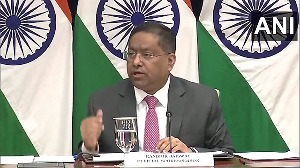Athletes and climate experts have expressed concerns that extreme heat could lead to severe health issues, including the risk of sportspeople collapsing or, in the worst-case scenarios, dying during the events.

The Paris Olympics could become the hottest ever in the history of the multi-sport event.
Athletes and climate experts have expressed concerns that extreme heat could lead to severe health issues, including the risk of sportspeople collapsing or, in the worst-case scenarios, dying during the events.
A report titled Rings of Fire: Heat Risks At The 2024 Paris Olympics highlights that the upcoming Games could surpass the extreme conditions of the Tokyo Olympics, where temperatures exceeded 34 degrees Celsius and humidity reached nearly 70 per cent.

The report was prepared by 11 Olympians, including winners of five World Championships and six Olympic medals, who have collaborated with climate scientists and leading heat physiologists from the University of Portsmouth to address the serious threat extreme heat poses for athletes.
Europe warmed at double the rate of the global average, making it the fastest-warming continent in 2023, according to a World Meteorological Organization report released in April this year.

Reason and challenge
'With global temperatures continuing to rise, climate change should increasingly be viewed as an existential threat to sport,' says Lord Sebastian Coe, president of World Athletics and a four-time Olympic medallist.
'For athletes, from smaller performance-impacting issues like sleep disruption and last-minute changes to event timings to exacerbated health impacts and heat-related stress and injury, the consequences can be varied and wide-ranging,' added Lord Coe.
Jamie Farndale, a rugby player for Great Britain, stated that despite the heat, athletes will still participate in the games, potentially putting themselves in danger.
'It is not in an athlete's DNA to stop, and if conditions are too dangerous, I think there is a risk of fatalities,' Farndale said.

Not only were the games affected, but also 2023 was the warmest year on record, according to the European Union's Copernicus Climate Change Service, and 2024 has continued the trend.
Experts at Copernicus indicated that April 2024 was the warmest April recorded in global history.
The Rings of Fire report also mentions the lethal heatwave in France in 2003, which claimed over 14,000 lives, as well as subsequent years of record-breaking temperatures that surpassed 42 degrees Celsius.
The highest-ranking triathlete in Indian history, Pragnya Mohan, stated in the report that she could no longer train in India owing to the extreme heat.
She explained that sponsors favoured afternoon events for better visibility, leading to her competing under dangerous conditions with temperatures exceeding 40 degrees Celsius and humidity above 80 per cent.
The Indian Meteorological Department released an alert in April, declaring that 2023 was the hottest year on record and that 2024 is expected to surpass it in terms of temperature.

Action needed
The report from the British Association for Sustainable Sport and FrontRunners outlines five recommendations to better support and protect athletes from extreme heat.
These include smarter scheduling to avoid extreme heat, introducing better hydration and cooling plans for athletes, empowering athletes to speak out on climate change, enhancing collaboration between sporting bodies and athletes on climate awareness campaigns, and reassessing fossil fuel sponsorship in sports.
Feature Presentation: Ashish Narsale/Rediff.com













 © 2025
© 2025